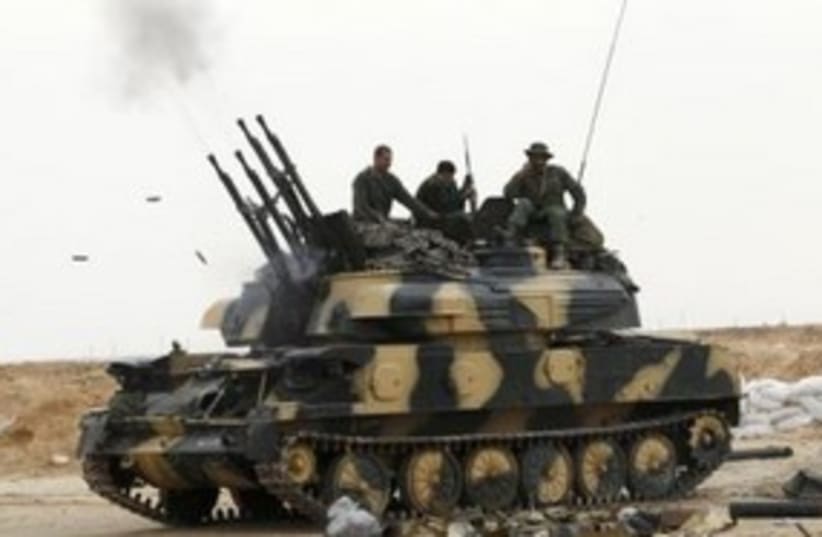MOST UNEMPLOYED, YOUNG MEN MISSINGMore than 400 people have gone missing in east Libya since the uprising against Muammar Gaddafi began six weeks ago, many feared killed or captured by government forces, human rights officials say.Relatives have stuck posters on the walls of hospital lobbies with photos of missing young men and telephone numbers to call with any information.Ahmed Mahdy Hussein, unheard from since Feb. 20, was one of the names listed at Al Jala hospital in Benghazi. Saleh Ukel Hussein, born in 1976, was another, missing since the same date.More than 120 posters adorned the walls and entrance gate of the hospital. At least four showed men in military uniform.Human rights workers say the numbers also include four Libyan doctors and three journalists. But most are unemployed young men who flocked to the rebel volunteer army as fighters or supporters.Others have been reported as seized by Gaddafi's security forces.At the Libyan Red Crescent office in Benghazi, tracing coordinator Omar Budabous and his team of about 10 volunteers have been compiling lists, interviewing relatives and visiting hospitals in the city and in Ajdabiyah, a town to the south that has changed hands a few times in the conflict."People come here every day to make a report," he told Reuters.He listed 353 missing from Benghazi and its outskirts, 17 from Ajdabiyah, 21 from Al-Bayda, a town to the northeast, and 22 from Tikra village."Most are civilians. Some went to the frontline with the rebels and there's been no news. Some have been captured," he said.The insurrection against Gaddafi's 41-year rule started in Benghazi in mid-February with street protests that his security forces tried to repress.It quickly developed into an armed conflict, with an untrained, undisciplined volunteer army, backed by allied air strikes, fighting Gaddafi's forces up and down the coastal highway through the northern desert.
Germany: 'Libyan situation cannot be resolved militarily'
Over 400 missing since uprising against Gaddafi began, most of whom are unemployed young men who flocked to the rebel army.

MOST UNEMPLOYED, YOUNG MEN MISSINGMore than 400 people have gone missing in east Libya since the uprising against Muammar Gaddafi began six weeks ago, many feared killed or captured by government forces, human rights officials say.Relatives have stuck posters on the walls of hospital lobbies with photos of missing young men and telephone numbers to call with any information.Ahmed Mahdy Hussein, unheard from since Feb. 20, was one of the names listed at Al Jala hospital in Benghazi. Saleh Ukel Hussein, born in 1976, was another, missing since the same date.More than 120 posters adorned the walls and entrance gate of the hospital. At least four showed men in military uniform.Human rights workers say the numbers also include four Libyan doctors and three journalists. But most are unemployed young men who flocked to the rebel volunteer army as fighters or supporters.Others have been reported as seized by Gaddafi's security forces.At the Libyan Red Crescent office in Benghazi, tracing coordinator Omar Budabous and his team of about 10 volunteers have been compiling lists, interviewing relatives and visiting hospitals in the city and in Ajdabiyah, a town to the south that has changed hands a few times in the conflict."People come here every day to make a report," he told Reuters.He listed 353 missing from Benghazi and its outskirts, 17 from Ajdabiyah, 21 from Al-Bayda, a town to the northeast, and 22 from Tikra village."Most are civilians. Some went to the frontline with the rebels and there's been no news. Some have been captured," he said.The insurrection against Gaddafi's 41-year rule started in Benghazi in mid-February with street protests that his security forces tried to repress.It quickly developed into an armed conflict, with an untrained, undisciplined volunteer army, backed by allied air strikes, fighting Gaddafi's forces up and down the coastal highway through the northern desert.